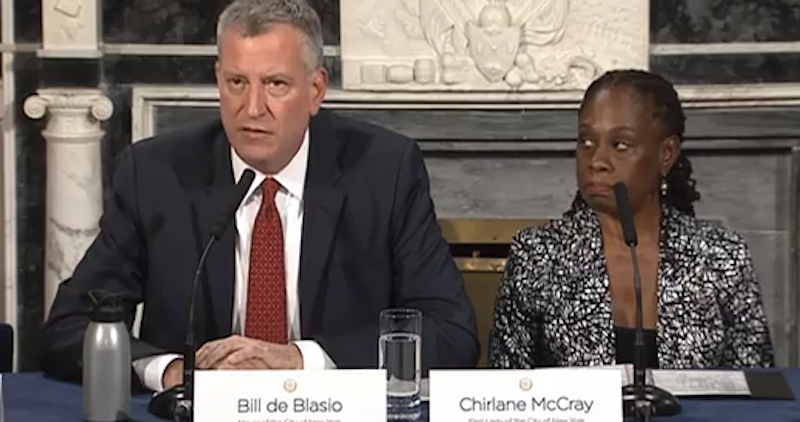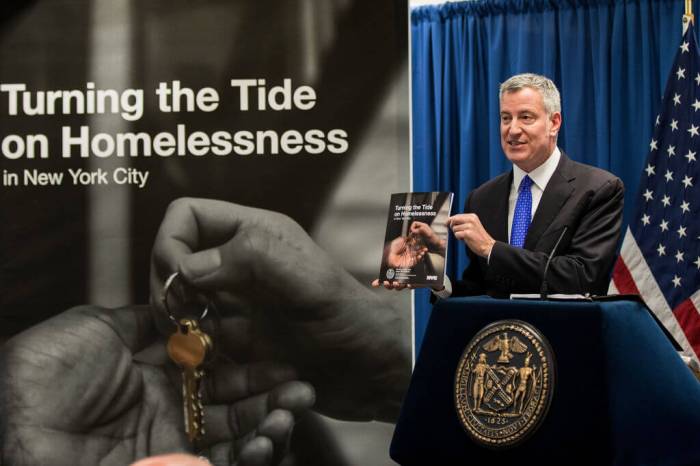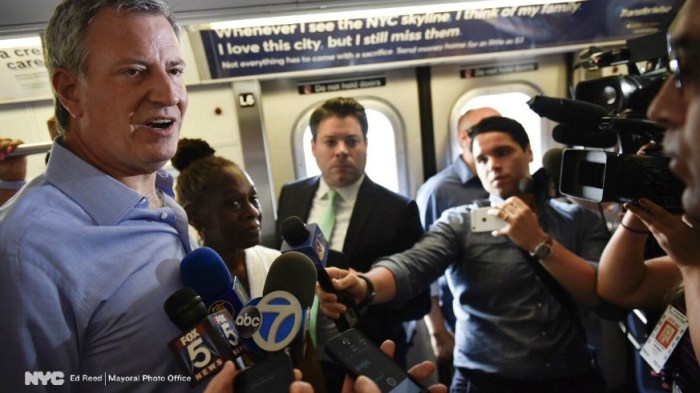New York City expanded its paid leave policy on Monday to help support residents who are survivors of domestic violence, sexual assault, stalking and trafficking.
Mayor Bill de Blasio signed the new law on Monday, which amends the administrative code of the city around paid leave and expands the “Earned Sick Time Act,” which will now be renamed the “Earned Sick and Safe Time Act.”
Under the new law, the nearly 3 million New Yorkers eligible for paid leave are now allowed to attend to their immediate safety needs “without fear of penalty or loss of income,” according to the city.
“No New Yorker should ever have to decide between their safety and a paycheck,” de Blasio said in a statement. “This new law will make it easier for survivors to get the care they need without jeopardizing their livelihood.”
By allowing “safe time” as a paid leave option, survivors can access the critical services they need — like receiving medical care, visiting domestic violence shelters or rape-crisis centers, filing a police report, meeting with a social worker and so on — as they immediately need, without fear of work repercussions.
The mayor, First Lady Chirlane McCray and City Council Member Julissa Ferraras-Copeland introduced the bill in October of 2016. In his statement, de Blasio thanked his co-introducers for “championing this cause, and fighting to bring an end to the pernicious cycle of domestic abuse.”
Across the United States, victims of intimate partner violence report an average of 7.2 days of work-related lost productivity per year, according to the New York City Domestic Violence Task Force.
The law goes into effect 180 days after signing. It does not add to the total amount of leave a worker can take — no less than 40 hours per year — but instead adds “reasons for using the leave to allow a survivor of domestic violence, sexual assault, trafficking or stalking to take time off of work in order to plan their immediate next steps and focus on safety, without fearing a loss of income,” according to the city.



















